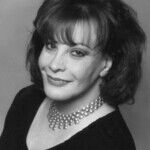Noah Webster (1758 — 1843) is widely regarded as "The Father of American English." He's most famous, of course, for his monumental dictionary, first published in 1828, which became the standard American lexicon and is still published in far less bulky versions today. But how much do you really know about him? Let's test your Noah Webster IQ.
True or False?
1. Noah Webster achieved sweeping reforms in American spelling.
2. His dictionary contained hundreds of Americanisms.
3. He had a profound effect on American pronunciation.
4. His most influential book was his dictionary.
5. He brought uniformity to American English.
Answers:
1. False. Most of Webster's far-fetched spelling revisions (groop, tuf, bilt, wimmin), mercifully, went unheeded. But give him credit for Americanizing British spellings such as honour, centre, defence and publick.
2. False. Webster's "An American Dictionary of the English Language" contained about 70,000 words, far more than any preceding dictionary of English. But only about 50 of its entries were Americanisms, including "skunk," "squash," "chowder," "penmanship" and "Americanize," but he did provide new American definitions for many existing words, such as "senate," "federal," "constitution" and "patriot."
3. True. While the British often elide syllables, Webster insisted that Americans give each syllable of a word full articulation. Largely because of Webster, Americans say "sec-re-tar-y" and "nes-es-sar-y," while Brits say "secret'ry" and "nessree."
4. False. Though very influential, Webster's dictionary sold only 2,500 copies in his lifetime. Far more momentous was his Blue-Backed Speller. First published in the 1780s, this reader for young children sold over 50 million copies and remained the standard primer for children well into the 20th century.
5. True. By using Webster's Blue-Backed Speller, children from every region of the United States learned the same words, spellings and pronunciations. Unlike the British, who often find the local dialects of other Brits incomprehensible, we know for sure that Americans from Maine ("fah-shaw") and California ("fer-sher") can understand one another — even if they sometimes can't stand one another).
Noah Webster stitched together the fabric of American national identity, not with laws or roads or canals, but with words. His Blue-Backed speller and his dictionary, toted across America in knapsacks, Conestoga wagons and saddlebags, helped unify and standardize the American language.
Rob Kyff, a teacher and writer in West Hartford, Connecticut, invites your language sightings. His book, "Mark My Words," is available for $9.99 on Amazon.com. Send your reports of misuse and abuse, as well as examples of good writing, via email to [email protected] or by regular mail to Rob Kyff, Creators Syndicate, 737 3rd Street, Hermosa Beach, CA 90254.
Photo credit: Bastian Riccardi at Unsplash






View Comments